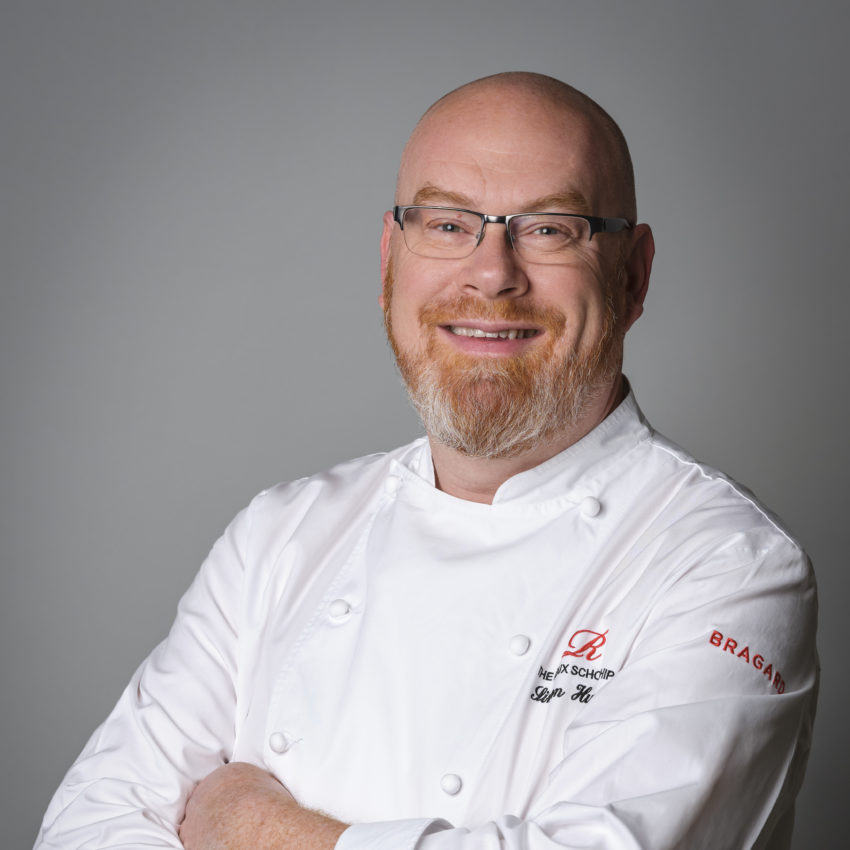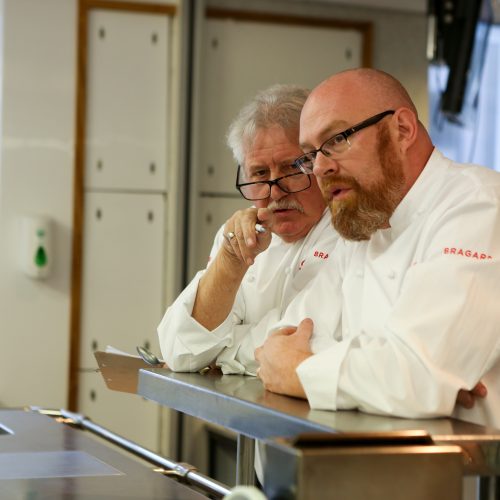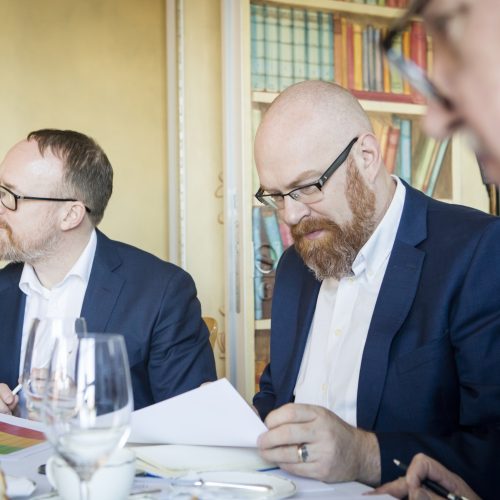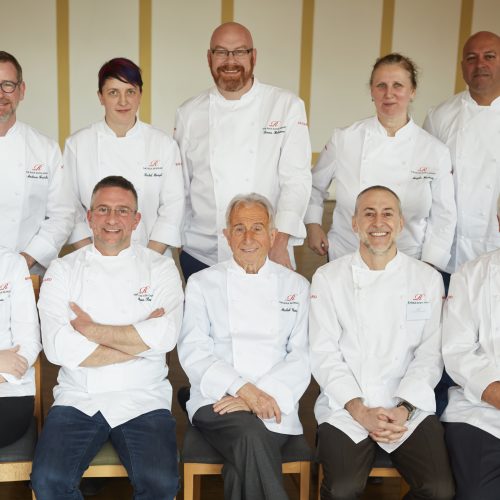
Simon became a Roux Scholarship judge in 2016 and brings his extensive experience with competitions to the judging panel. As well as winning the Roux Scholarship in 2003, Simon has excelled in culinary competitions since his early teens: at the age of 20 he competed in the European Culinary Championships, and then in 1995, he won gold in the Youth Skill Olympics in France. Simon won the National Chef of the Year 2008, and has he has represented Great Britain in the Bocuse d’Or twice, 2009 and 2011 He was captain of the British team in the Culinary Olympics and was also captain of the English Culinary Team at the Culinary World Cup in 2010 and 2012.
His restaurant The Elephant, in the Devon seaside town of Torquay, has held a Michelin star since 2006 and how three AA rosettes , while his prior career has seen him progress through the kitchens of some of the UK’s leading restaurants and hotels. Since 2008, he has had a 100-acre farm that supplies The Elephant, which has furthered his love and knowledge of good ingredients; proving that a restaurant’s produce needs nurture in its journey from seed to plate.
Simon’s talents make him a role model for many aspiring chefs. He takes his responsibility to develop young talent seriously, training chefs to Michelin standards and mentoring them to compete in national and international competitions. Simon also works closely with catering colleges, regularly taking on chefs for work experience throughout the year.
Outside of his restaurant duties, Simon has worked as an ambassador for some of the world’s best- known brands, including British Airways, Electrolux, SantaMaria and Steelite. His highlights include working with Heston Blumenthal to create a menu for British Airways passengers during the Olympics and Paralympics and preparing a Team GB fundraising banquet which was attended by Prince William and the Duchess of Cambridge.



How do competitions benefit a chef’s career?
Competitions have helped me progress not only in my career but in self-confidence. They give you a chance to network and are opportunities to meet and work with other chefs and test ideas out. Learning precision and timing in competitions can be translated to your daily work-place.
How does the Roux Scholarship compare to the other competitions you’ve taken part in?
The Roux Scholarship is a totally different competition to any other: it is the elite. But the main thing is that once you become a scholar its not just a one-year prize, you become party to something that grows stronger every year; a family of like-minded chefs who are Britain’s best. It’s the prize that keeps giving.
What advice would you give to chefs from small brigades for preparing for the Roux Scholarship?
With any kitchen brigade, time and expense is always a major concern; use your establishment to promote the fact you are in such a major competition, practice your menu on your best customers and senior colleagues but, most of all, respect your establishment and work with them. Most restaurants will be scared of losing you if you win and move on but the reality is, you both can gain from the competition is so many ways. Stay humble.
What do you enjoy about judging the Roux Scholarship?
What I have noticed since becoming a judge is the competitors feel a bit more at ease knowing the chefs have been through it and are approachable. The big thing when I competed was that I was in awe of the judges and I should never have been, we want to help you become the best so approach us, ask questions and we will guide you.
What advice would you give applicants?
With any competition, cook what you feel comfortable cooking, no one ever wins trying to be a hero. Talk with your team and get advice, listen, take constructive criticism. The competition is life-changing. Ask yourself: are you ready for that, is your establishment ready for that? If so, go for it.
How can taking part in The Roux Scholarship help a chef's career?
If you look at all the winners of the scholarship, they are all at the top of their game. The positivity from winning and entering such a brilliant competition not only helps your career but your positive mindset and this filters through to your team and everyone around you. If you don’t enter you can never win.
Why is it important to learn the classic cooking techniques?
It is the basis to everything we do today, be it modern gastronomy or classical. Taking time to make a sauce from scratch, be it a simple hollandaise, a beautiful pâte en croûte, not only gives you joy, they are skills to retain and pass on.
What have you learned thanks to being a judge?
That so much goes on behind the scenes to make a perfect competition and to keep the candle burning for the next Roux Scholar.
